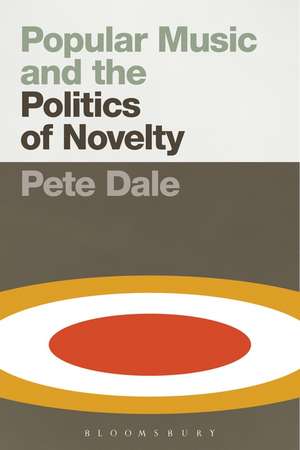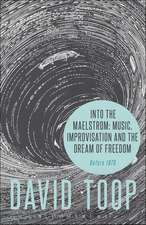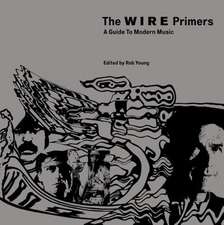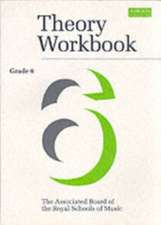Popular Music and the Politics of Novelty
Autor Senior Lecturer in Popular Music Pete Daleen Limba Engleză Hardback – 6 apr 2016
| Toate formatele și edițiile | Preț | Express |
|---|---|---|
| Paperback (1) | 237.75 lei 6-8 săpt. | |
| Bloomsbury Publishing – 6 apr 2016 | 237.75 lei 6-8 săpt. | |
| Hardback (1) | 831.43 lei 6-8 săpt. | |
| Bloomsbury Publishing – 6 apr 2016 | 831.43 lei 6-8 săpt. |
Preț: 831.43 lei
Preț vechi: 1066.05 lei
-22% Nou
Puncte Express: 1247
Preț estimativ în valută:
159.11€ • 165.17$ • 132.67£
159.11€ • 165.17$ • 132.67£
Carte tipărită la comandă
Livrare economică 22 martie-05 aprilie
Preluare comenzi: 021 569.72.76
Specificații
ISBN-13: 9781501307041
ISBN-10: 1501307045
Pagini: 240
Dimensiuni: 152 x 229 x 23 mm
Greutate: 0.48 kg
Editura: Bloomsbury Publishing
Colecția Bloomsbury Academic
Locul publicării:New York, United States
ISBN-10: 1501307045
Pagini: 240
Dimensiuni: 152 x 229 x 23 mm
Greutate: 0.48 kg
Editura: Bloomsbury Publishing
Colecția Bloomsbury Academic
Locul publicării:New York, United States
Caracteristici
The book takes an unusual position on a much discussed (perceived) problem in relation to contemporary music.
Notă biografică
Pete Dale is a Senior Lecturer in Popular Music at Manchester Metropolitan University, UK.
Cuprins
1. Introduction2. First chapter: 1899 and All That3. Second chapter: If You Don't Care to Remember 'The Sixties', You Probably Weren't There4. Third chapter: 1977, Year Zero (ish)5. Fourth chapter: Badiou and the Postmodern Turn, Turn, Turn6. Fifth chapter: Hetero-mania in the 21st Century7. Sixth chapter: What's Left for the Future of Pop?
Recenzii
[The book] challenges the reader and makes them think - and that's always a good thing ... Dale certainly wants to make the world a better place - and in writing this book he has made his own, distinctive, contribution to that.
Dale takes a fresh approach by investigating the role of novelty in popular music and its influence on social and political agency ... This is a well-researched book that uses musical and social analyses in order to better understand music's potential role in social change and social justice.
Pop music has always foregrounded novelty. But how exactly should we understand this quality, in music or more generally? Today especially, the question whether anything ever really changes seems particularly pressing. To investigate these issues, I can think of nobody better qualified than Pete Dale, who, as well as possessing all the necessary skills of musical, cultural and political analysis, has himself been making and promoting cutting-edge music for years.
Popular Music and the Politics of Novelty is an engaging and provocative book. It challenges conventional wisdom about the relationship between music and politics, and more particularly that between novelty and radicalism. Pete Dale is himself an entertaining guide to an array of theories, case studies and historical moments. As a result, the reader is treated to a bracing and stimulating journey.
Providing a novel reading of a contentious question and bringing together a range of thoughts and ideas in an accessible way, Popular Music and the Politics of Novelty is a timely assessment of the debate on politics and music. This volume moves from theoretical musings to analyses of popular music in a way that is both stimulating and exciting, and will be a major contribution to the way people think about and act upon the relationship between music and politics.
Dale takes a fresh approach by investigating the role of novelty in popular music and its influence on social and political agency ... This is a well-researched book that uses musical and social analyses in order to better understand music's potential role in social change and social justice.
Pop music has always foregrounded novelty. But how exactly should we understand this quality, in music or more generally? Today especially, the question whether anything ever really changes seems particularly pressing. To investigate these issues, I can think of nobody better qualified than Pete Dale, who, as well as possessing all the necessary skills of musical, cultural and political analysis, has himself been making and promoting cutting-edge music for years.
Popular Music and the Politics of Novelty is an engaging and provocative book. It challenges conventional wisdom about the relationship between music and politics, and more particularly that between novelty and radicalism. Pete Dale is himself an entertaining guide to an array of theories, case studies and historical moments. As a result, the reader is treated to a bracing and stimulating journey.
Providing a novel reading of a contentious question and bringing together a range of thoughts and ideas in an accessible way, Popular Music and the Politics of Novelty is a timely assessment of the debate on politics and music. This volume moves from theoretical musings to analyses of popular music in a way that is both stimulating and exciting, and will be a major contribution to the way people think about and act upon the relationship between music and politics.















